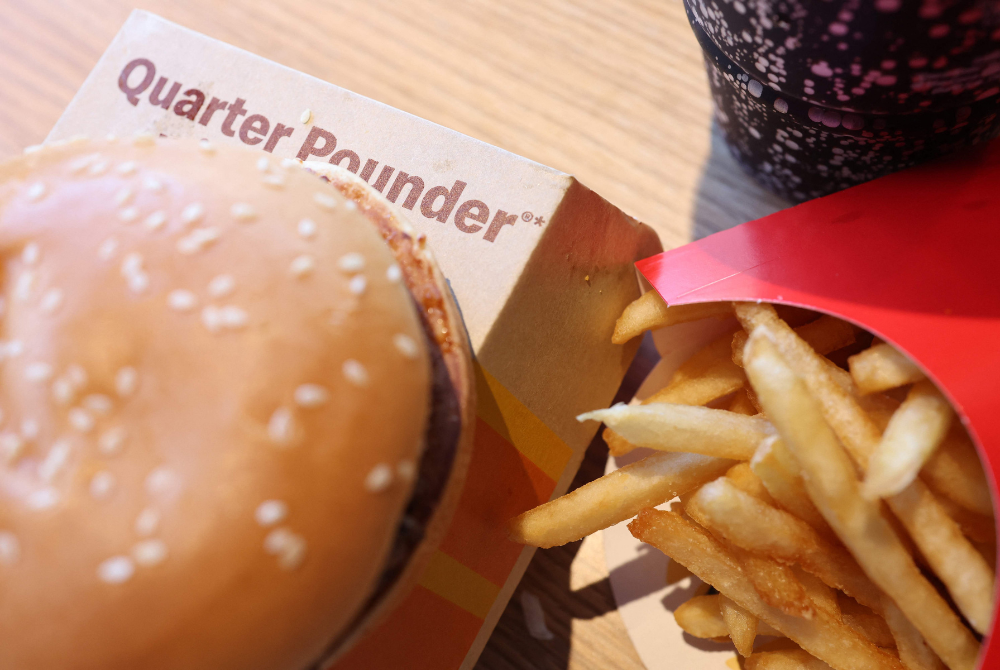McDonald’s pulls Quarter Pounders amid E. coli scare: What to know and how to protect yourself
The fast-food giant also issued a statement on Sunday stating that it would start selling its Quarter Pounder hamburgers again after tests for E.coli came back clear.

SHAH ALAM - McDonald's restaurants across a dozen Unites States (US) states had temporarily removed the Quarter Pounder burgers from their menus, last week, following an outbreak that led to 22 being hospitalised and one reported death.
It was reported that US public health agency Centres for Disease Control and Prevention had advised those who consumed a Quarter Pounder and developed symptoms of E. coli poisoning such as diarrhea, bloody diarrhea, a fever over 102 degrees Fahrenheit (38.9°C) and vomiting to seek medical attention.
The fast-food giant also issued a statement on Sunday stating that it would start selling its Quarter Pounder hamburgers again after tests for E.coli came back clear.
It said no e.Coli was detected in its Quarter Pounder beef patties following tests from the Colorado state Department of Agriculture adding that no more tests were planned by the department.
Here’s what to know about E. coli, how it spreads and how to protect yourself.
What is E. coli?
E. coli is a bacterium that lives naturally in the intestines of humans and animals, most strains are harmless but certain types like Shiga toxin-producing E.coli (STEC) can cause severe illness.
These harmful strains can lead to symptoms such as stomach cramps, vomiting and bloody diarrhea.
In serious cases, E. coli infections can cause kidney failure, particularly in children and older adults.
How to tell if you have E. coli
Symptoms of E. coli infection usually appear within three to four days after consumption of contaminated food and typically resolve within a week.
However, severe symptoms require medical attention. These include intense stomach cramps, extreme or bloody diarrhea and vomiting.
Children and older adults are particularly susceptible to severe complications, which could include kidney failure or clotting disorders.
How to protect yourself from E. coli
To minimise the risk of E. coli infection, the CDC and other health authorities recommend the following precautions:
1. Cook food thoroughly: Ground beef should be cooked to an internal temperature of at least 160°F (71°C) to kill E. coli bacteria. Avoid eating undercooked ground beef and be cautious with dishes that include raw vegetables during outbreaks.
2. Practice Good Hygiene: E. coli can spread through contact with infected individuals or contaminated surfaces. Washing hands regularly, especially after handling animals, using the restroom, or changing diapers, is crucial. This simple measure can help prevent the spread of bacteria.
3. Choose Safe Water Sources: E. coli has been linked to contaminated water sources in the past. Ensure your drinking water is safe and avoid swallowing water in lakes or rivers, which may contain animal faeces.
By following these guidelines, it can help reduce the risk of E. coli infection, especially during known outbreaks.













